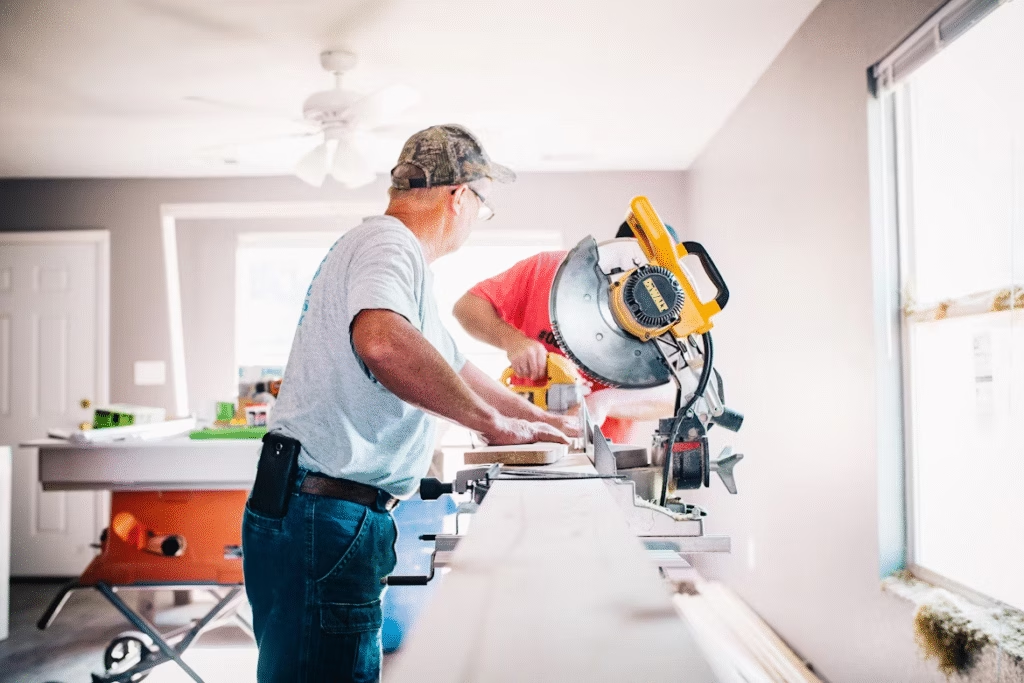
Home improvements often require time, focus, and patience, which can be challenging for frequent travelers. Balancing a busy schedule with the demands of renovation projects may feel overwhelming. Still, with the right planning and communication, homeowners can manage updates effectively without sacrificing travel plans. Creating a strategy that accommodates both lifestyle and property goals ensures improvements happen smoothly, even when time at home remains limited.
Identifying Priorities Before Leaving
Frequent travelers must first establish clear priorities before beginning home improvements. Not every project requires immediate attention, so distinguishing between urgent repairs and long-term updates prevents wasted energy and resources. For example, addressing a leaky roof or outdated plumbing matters more than repainting a guest room.
By setting a clear list of priorities, homeowners avoid surprises while traveling. Contractors appreciate precise direction, and projects progress more smoothly when objectives remain well defined. Establishing these priorities helps balance improvement needs with travel responsibilities.
Working With Reliable Contractors
Trust plays a central role when homeowners spend limited time at their properties. Choosing reliable contractors ensures projects continue efficiently, even when the homeowner is away. Researching reviews, checking credentials, and interviewing multiple professionals increases confidence in the selection.
Good contractors provide regular updates through phone calls, video check-ins, or project management apps. This ongoing communication reduces stress and allows homeowners to remain involved in decision-making while traveling. When trust exists, homeowners feel secure knowing their investment remains in capable hands.
Using Technology for Remote Oversight
Technology makes it possible for travelers to monitor projects from anywhere in the world. Video conferencing tools, smart home cameras, and project management platforms provide real-time insights into progress. These tools empower homeowners to track work, review completed stages, and authorize next steps without returning home.
Digital signatures and online payment systems also streamline the process. Homeowners can approve estimates, pay invoices, and request changes instantly. Integrating technology into renovation planning eliminates delays and keeps projects aligned with schedules.
Finding Resources to Stay Informed
Access to reliable information helps travelers make confident decisions about home improvements. Guides, professional networks, and industry platforms provide insights into best practices and cost expectations. Many homeowners turn to digital resources to plan effectively, saving both time and money. For example, some explore tools that allow them to read more about renovation strategies that fit their unique lifestyles. Reliable resources reduce uncertainty and guide smarter decision-making.
Planning Projects Around Travel Seasons
Home improvements become more manageable when planned around personal travel seasons. If frequent travel occurs during certain months, homeowners can schedule projects during periods of stability. Larger renovations such as kitchen remodels or roof replacements, often align best with times when homeowners expect to be home longer.
Smaller projects that require minimal oversight may continue during extended trips. For example, landscaping or painting can often progress without daily involvement. Balancing travel timelines with project scope ensures that both goals remain achievable.
Maintaining Flexibility in Project Timelines
Even with the best planning, unexpected delays sometimes occur. Supply chain challenges, weather conditions, or labor shortages may push schedules beyond initial projections. Travelers must accept these uncertainties and maintain flexible timelines.
Flexibility reduces frustration and supports better relationships with contractors. Homeowners who prepare for contingencies avoid the disappointment of unrealistic expectations. With patience and adaptable planning, projects stay on track even when external factors create disruption.
Budgeting for Convenience
Travelers benefit from budgeting for the project itself, as well as for added conveniences that save time. For instance, paying for professional cleaning after renovations saves homeowners from returning to a messy environment. Arranging storage solutions for furniture during updates prevents damage and simplifies the process.
These additional investments create smoother transitions between travel and home life. By planning financially for both the renovation and the conveniences surrounding it, homeowners protect their peace of mind.
Delegating Responsibility
Homeowners who spend significant time away may find it useful to delegate responsibilities to trusted friends, family members, or property managers. Delegates can oversee daily progress, handle small decisions, and report issues immediately.
Delegation reduces the burden on homeowners while ensuring projects maintain momentum. Property managers, in particular, offer professional oversight and experience handling renovations. This support network ensures that progress continues even during extended absences.
Balancing Lifestyle and Long-Term Goals
Every home improvement project should connect to the homeowner’s long-term vision. Frequent travelers often prioritize low-maintenance upgrades that reduce future demands. For instance, durable flooring, energy-efficient systems, and smart home integrations provide lasting value with minimal upkeep.
Travelers should align their projects with lifestyle needs rather than temporary preferences. This balance ensures that renovations improve both daily living and long-term property value. Homeowners create spaces that support their lives without requiring constant supervision.
Creating Peace of Mind
Renovations can create stress for anyone, but the challenge multiplies when travel schedules limit time at home. Establishing trust with contractors, using technology for oversight, and delegating responsibility all contribute to peace of mind. Homeowners who take these steps return to properties that reflect both their vision and their investment.

Frequent travel does not need to prevent successful home improvements. By prioritizing projects, working with reliable professionals, embracing technology, and planning around travel seasons, homeowners can achieve their goals without sacrificing their lifestyle. Smart strategies protect both financial investments and personal comfort, ensuring that every project delivers satisfaction even from afar.




